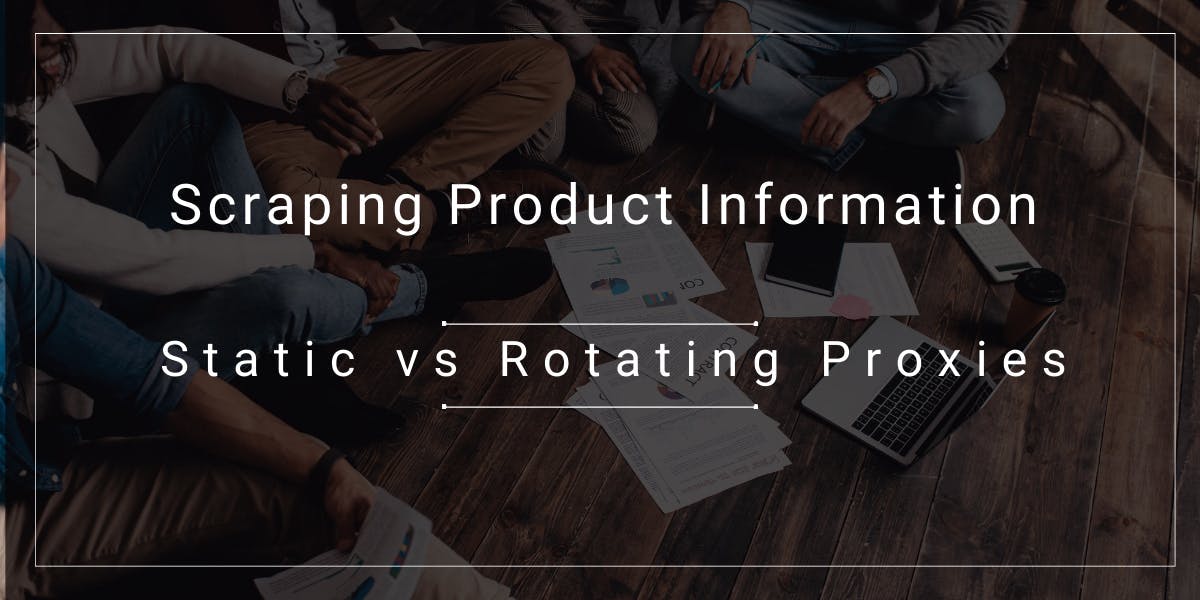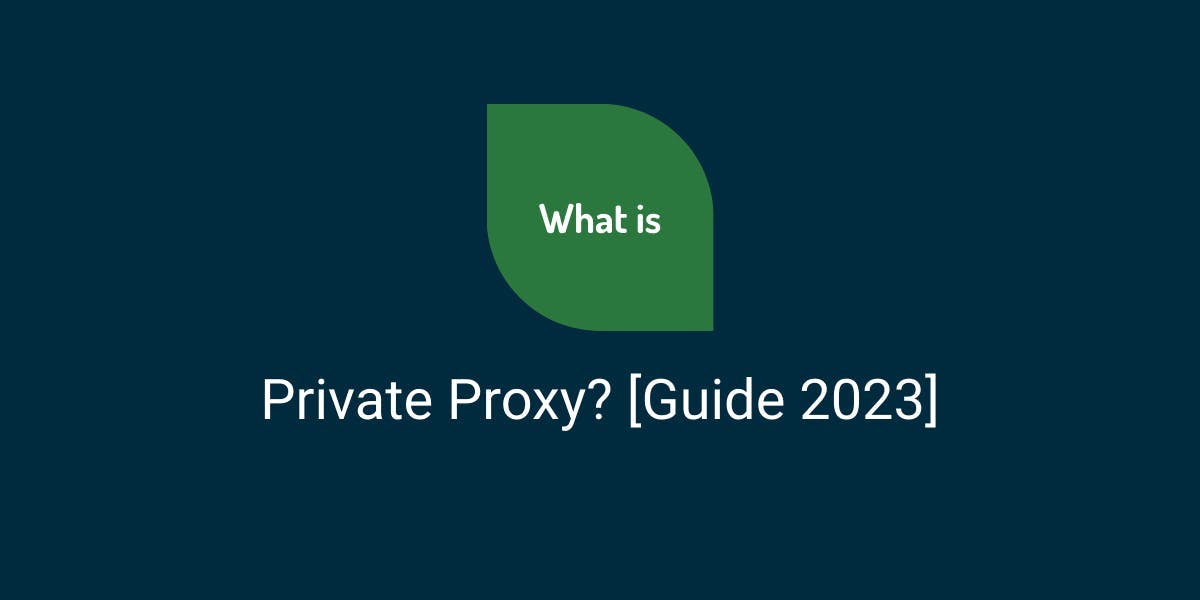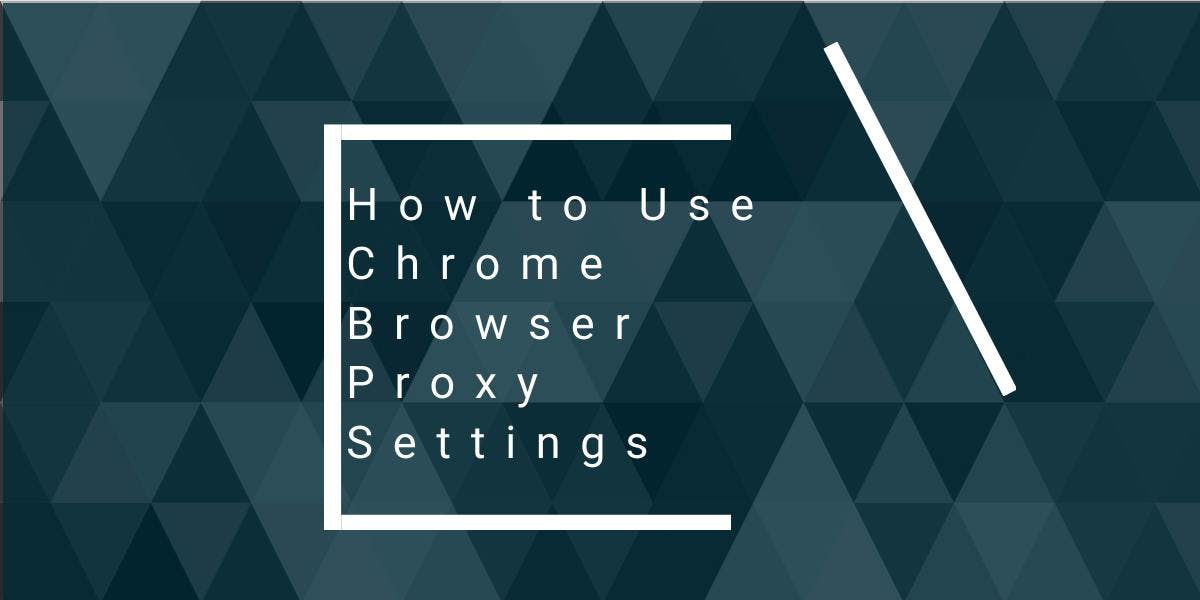Scraping Product Information: Static vs Rotating Proxies
Flipnode on Jun 16 2023

Embarking on a successful web scraping operation requires careful planning and execution. From understanding bots to selecting and configuring them, and even evading blockades, numerous factors contribute to this intricate process. Amidst these considerations, one pivotal decision you must make is choosing the right proxy type.
When evaluating various proxy options, it becomes crucial to grasp the distinctions between static and rotating proxies. This knowledge empowers you to make an informed choice aligned with your specific business requirements and objectives. With this understanding, you can confidently embark on your scraping journey, leveraging the optimal proxy solution.
What is a static proxy?
A static proxy offers the ability to access the web using a single unique IP address, typically a datacenter IP assigned to you. This static IP address, also known as a sticky IP address, remains yours for as long as you require it. Leveraging static proxies allows you to benefit from proxy usage by maintaining online anonymity while enjoying high speed and ample bandwidth. However, when using static proxies, it becomes necessary to implement logic that rotates proxies to avoid IP bans.
While most static proxies are datacenter IPs, and residential proxies are typically rotating, there are exceptions to this rule. For example, static residential proxies or datacenter proxies with a proxy rotator feature exist. Therefore, it is essential to determine the precise type of proxies that suit your specific needs.
Certain business use cases demand the implementation of static proxies. Social media managers handling multiple accounts, for instance, may require dedicated static proxies for each account to prevent platform blocks resulting from IP variations.
Likewise, in manual marketing research, a static proxy can prove valuable when gathering consistent data from specific locations or sources. This is especially advantageous given the dynamic and ever-changing nature of marketing data.
By understanding the nuances and benefits of static proxies, you can make informed decisions regarding their implementation, ensuring optimal performance and desired outcomes for your business requirements.
What is a rotating proxy?
In contrast to a static proxy that assigns a single persistent IP address, rotating proxies offer access to a diverse pool of IP addresses. These proxies dynamically interchange IP addresses at fixed or random intervals. For instance, with every request you make or every few minutes, the IP address can change.
By utilizing rotating proxies, you gain an extra layer of security and anonymity. Each request you send to servers originates from different IP addresses, often from unrelated geographical locations. This rotation of IP addresses ensures that your online activities remain highly discreet and difficult to trace back to your original source.
With the advantages of a rotating proxy, you can enjoy heightened privacy and protection, allowing for seamless web scraping, data extraction, and various other online activities while maintaining an optimal level of anonymity.
Proxy rotator
It's important not to conflate rotating proxies with a proxy rotator. While rotating proxies refer to a pool of IP addresses that interchange at fixed or random intervals, a proxy rotator is a software solution designed to automate the rotation of otherwise static proxies.
With a proxy rotator, the software takes care of assigning IP addresses automatically, giving you the ability to customize cooldown times between IP changes. This tool serves as a valuable asset, particularly when used in conjunction with datacenter proxies.
By leveraging a proxy rotator, you can enhance the functionality of static proxies, enabling seamless rotation and optimization of IP addresses to suit your specific needs. This software solution empowers you to efficiently manage and control the rotation process, maximizing the benefits of your datacenter proxies for various applications, including web scraping, data analysis, and more.
Scraping and e-commerce industry: the close ties
What is the connection between scraping, static and rotating proxies, and e-commerce? In the increasingly competitive e-commerce landscape, businesses face challenges due to market saturation, price-sensitive consumers, and the importance of search engines in product research.
To thrive in this environment, e-commerce businesses require extensive data. This goes beyond making data-driven decisions and is crucial for growth, market penetration, and sustainability.
Product information pages hold valuable insights beyond basic price and description. Scraping product descriptions helps identify keywords used by competitors to rank higher in search engine result pages (SERPs). Monitoring user reviews reveals customer pain points, while tracking prices helps stay updated on market trends.
Manual data collection from product pages is time-consuming and error-prone. Moreover, product information constantly changes, including prices, discounts, and counterfeiting risks. Manual methods lack the ability to detect these changes and identify patterns efficiently.
Data scraping addresses these challenges by providing fast, automated access to the required information. Bots handle the scraping process, enabling real-time data extraction without manual effort. The scraped data is well-structured, allowing for easy identification of trends, patterns, and specific details.
Static or rotating proxies for product information scraping
Major players in the e-commerce industry are well aware of website scraping by their competitors, and they might even engage in scraping themselves. However, scraper bots can negatively impact the customer experience by generating excessive traffic within a short period. This influx of traffic and requests can significantly slow down or even crash an e-commerce website.
To counteract this, many e-commerce websites implement anti-scraping technologies that detect suspicious user behavior and request headers. Differentiating between bots and genuine users has become easier, with frequent and high-volume requests from a single IP address being a prominent red flag. This is where the comparison between sticky and rotating proxies becomes crucial.
In the case of large-scale scraping operations, where a substantial number of product pages are involved, the risk of being blocked by the target website is high. To mitigate this risk, either a large number of sticky proxies or rotating proxies are necessary. Some targets may require the same IP address for a specific duration, while others may require frequent proxy rotation. If unsure about the likelihood of getting blocked or the required number of static proxies, opting for rotating proxies is a better choice.
In summary, this specific use case demands either a significant quantity of sticky proxies or the utilization of rotating proxies. Choosing the appropriate approach depends on the specific requirements of the target website, such as the need for IP address stability or frequent rotation, while minimizing the risk of being blocked.
Conclusion
Having understood the key distinctions between static and rotating proxies, you now have valuable insights to make an informed decision regarding their usage for gathering product information from e-commerce websites.
When embarking on a significant web scraping venture, the choice between static and rotating proxies hinges upon the characteristics of your target site. However, in cases where you lack comprehensive information about the target site's blocking tendencies or scraping restrictions, opting for rotating proxies is the recommended approach. By leveraging rotating proxies, you enhance your chances of successfully scraping the desired data without running into potential roadblocks.



